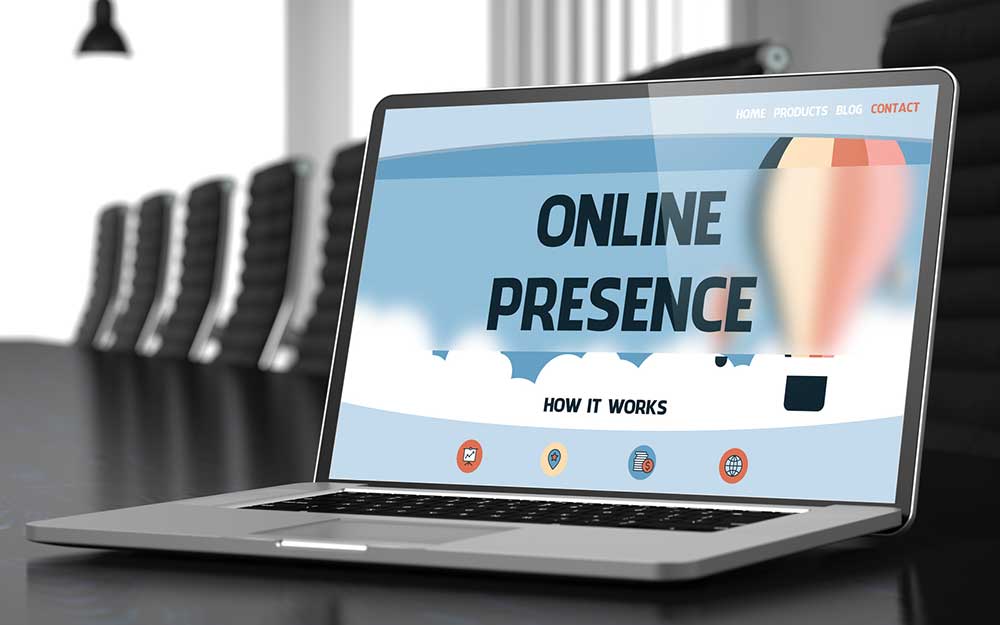The Real Difference Between Content Writing and Copywriting
The entire industry often gets confused when using the terms of content writing and copywriting.
Here are the main differences between the two.
When speaking of digital markets and the recent norm of content marketing, a common dilemma arises. The entire industry often gets confused when using the terms of content writing and copywriting. Often, they place the idea under the same umbrella.
Since both ideas are very closely linked to each other, there is yet a significant line of distinction between the two. The ideals of the two are also thoroughly different from each other, and even the objectives differ on the result. Nonetheless, the points of distinction are vague and cause ambiguity in the various professions and activities around the two.
Creativity is an imperative element in the content business. Both copywriting and content writing depend upon it for their survival. However, even the use of creativity is completely different, and the necessary skills in demand for the two are also a matter of prime difference. There is also a raging debate surrounding the responsibilities in both of these respective job roles. Many are divided over which is more challenging and which
upholds the image of the product in the market. In the face of such questions and biased thoughts, here is an attempt to clear the clouds over the difference between copywriting and content writing.
Definition
Content writing can be defined as the description of the product in layman’s terms. It is a deep dive into the nature of the product, the features of the product, the utility of the product and the durability of the product. This form of writing is aimed at educating the consumer in terms of the product or service they buy or rent. The intricate information available about the product is maintained through content writing. The writer goes through a session of product study, its benefits and its flaws. They then draft the content, which informs the customer about every aspect of their purchase. Blog posts, FAQ sections, how-to articles, detailed product descriptions, email newsletters and ebooks are all examples of content writing.
Copywriting is not such a comprehensive, detailed reading of the content. It is aimed at the consumer with the sole purpose of driving their decision to purchase. Content marketing is the primary objective of copywriting. They intend to attract customers with engaging and catchy lines and phrases to grab their attention. The copy of a marketing campaign usually highlights the product as the efficient commodity missing from the consumer’s life. It is also based on market and field research and is drafted solely keeping in mind the preference of the consumer. The data from the research is to read the needs of the customer and target the phrases at those points.
That objective achieved is the birth of a successful campaign. Examples of copywriting would be taglines, billboards, brochures, radio scripts, TV scripts and magazine brochures.
Key responsibilities
The primary responsibility of a content writer is to provide informative content. They are to conduct thorough market research and formulate the content that consumers demand. The content they provide must not be informal and should maintain the barriers of formal language. The manner of writing should be appealing as well.m However, content writers must make sure to not use any form of pop-culture language or slang in
their content and make sure that they provide a well-proofread document. Grammatical errors or errors in phraseology make for a bad reading experience. The writer’s job even extends to SEO infusion within the content. It is imperative for a content writer to have SEO knowledge. There is a debate over the importance of SEO, but in the case of ranking, searchability and prominence, SEO works wonders. A content writer must have pure and unparalleled knowledge for keywords, their use, their efficiency, backlinking, hyperlinking and all forms of SEO marketing, so that the content
appears in the search engine. Catchy and informative headlines are also very important.
Copywriting, on the other hand, has a distinct set of responsibilities altogether. The process for every campaign begins at meeting the stakeholder for the product. The marketing team focuses on providing a voice and identity to the brand. The attractive taglines and the relatable stories regarding a product or commodity are based on the common objective of making it a household name. The advertisement scripts are also
crafted with the needs of the consumer and their basic demands in mind.
Another point of distinction
Another difference worth mentioning is that the work that comes out of copywriting is not as lengthy as content writing. Copywriters target relatable, catchy content and are focused on making the most from the product’s information and features. However, on the other hand, content writers usually target the lengthy form of content where they can sufficiently touch upon each aspect of the product or service and make the most of the article and space provided. They intend to deliver on-point information to the consumer that will be helpful to them even after the purchase.
In the end, both are very relevant to business in their own respective format and are often seen to be working in cohesion. In the present light of business, there is a dire need for both of these departments in a company.

Adeyinka Abe
I'm committed to helping you grow your influence, get visible and productive to earn profitably from your expertise. Helping you grow your business gives me fulfilment. You are missing out on valuable tips and tricks if you are not following me on social media.
Most Websites Never Reach Their Full Sales Potential. Here’s Why.
Many websites are held back by strategies that can be easily changed.
Increasingly, entrepreneurs are leaning on their websites to do the selling on behalf of their business. This is advantageous in many ways. It’s automated, it’s easy to make adjustments, and you may not have to pay for a full in-house sales team to manage it.
However, it’s important to realize that most websites never reach their full sales potential. They never generate as many sales, or as much revenue, as they could under different circumstances. This is difficult to empirically prove since we might never know what the full potential of a website is. That said, we can reasonably assume that websites could probably sell more — most websites are held back by simple things that can be easily changed.
The deceiving allure of full potential
It’s difficult, if not impossible, to figure out what the true potential of a website is. That’s because there’s almost always room for subsequent growth, whether that’s reaching new audience members, achieving a higher conversion rate or boosting some other important metric. In some ways, it’s an exercise in futility to try and reach that full potential, because you’ll never end up getting there. But it’s also a valuable motivational tool and baseline philosophy to assume that there are always improvements that can help your website achieve higher sales.
It’s relatively easy to commit to a small, limited goal like boosting your conversion rate by a specific percentage within a specific frame of time. It’s much harder to commit to a culture of ongoing improvement and near-constant changes.
Common mistakes that limit sales growth
There are many possible reasons why your website isn’t generating sales — or as many sales you want. Inconsistent branding. It could be a large, somewhat generic problem, such as inconsistent branding. If it’s not clear what your company does or what it stands for, people aren’t going to be interested in buying from you. The same is true if your branding efforts on the website aren’t different from the branding efforts you’ve made in other capacities, such as in your traditional marketing and advertising campaign.
Uncompelling offers.
If you want people to buy something, you need to price it and market it appropriately. If your offer isn’t compelling, it doesn’t matter how many people are visiting your website — they’re not going to buy. Market research is your best tool for figuring out whether your products are genuinely appealing to your target audience and whether it’s priced correctly.
Site functionality issues.
Does your site work correctly on all browsers and all devices? If a person has difficulty viewing your content, or if they can’t navigate your pages easily, they may leave and return.
Poorly written content.
Even if you’re not into content marketing, you should recognize the value of having competently written content. If your website content or your calls to action are sloppily written, it’s going to be discouraging for prospective customers.
Audience targeting issues.
It’s also possible that you’re targeting the wrong audience, or you’re reaching your intended audience in non-relevant ways.
Revisit your audience. research to verify your assumptions and ensure you’re reaching your audience as effectively as possible.
Trust issues.
Before you can expect customers to buy from your business, you need them to trust your brand. If your design, your website content or other particular features of your website lead people to distrust your brand, it’s going to be difficult to get people to follow through on sales.
The curse of complacency
Even if you’ve learned from these common mistakes and you have a fantastic sales strategy in place, there’s a chance you’ll never reach your full potential because of complacency. Essentially, this means you reach a certain sales target and feel inclined to maintain the status quo indefinitely. Let’s say your website is generating $100,000 in sales every month; you decide that’s pretty good and even more than you initially expected. Why bother changing the formula if you’re already seeing great results? You could make the argument that overhauling a strategy at this point would be unpractical and detrimental to business. It’s also a bad idea to simply assume that this is the best you can do. Too many entrepreneurs lock themselves into a relatively low conversion rate simply because they are interested in trying to achieve more. If you want to maximize your chances of success, you need to keep pushing your website for further improvements.
There’s a flip side to the argument. It’s important to realize that you’re not reaching your full potential, and you can push your website to achieve more with the proper research and strategizing. But it’s also important to realize that you can’t afford to mindlessly chase moving goal posts. It’s on you to find the balance and put together the sales strategy you need for your website to be successful.

Adeyinka Abe
I'm committed to helping you grow your influence, get visible and productive to earn profitably from your expertise. Helping you grow your business gives me fulfilment. You are missing out on valuable tips and tricks if you are not following me on social media.
How to Build an Authentic Brand
Authentic branding is not about “appearing” authentic – it’s about truly being who you really are. Here’s how to establish a brand that reflects your honest self.
The world we live in today has more information than we can process, and it is only increasing. There’s no doubt that everyone has a story to tell, but what and how you tell the story is the most important part of your journey. The line between an Instagram Reel and being real is getting thinner by the day. We never know who is the same offline as they are online.
Being authentically you is so important for long-term success. Everything about authentic branding boils down to one thing: honesty. Authentic branding is not about “appearing” authentic, it is about truly being who you really are. After growing my own brand over these past few years and helping others do the same, I wanted to put together a list for anyone who is just beginning, or anyone struggling to understand how to brand themselves.
1. Find your niche
People have a fear of doing what they love. Many people do the things they love as a hobby and still feel unsure or not good enough to go all in. What if I told you that the struggles in our lives really do shape us? Struggles teach us the skills we need, and once we learn how to survive using specific skills, then we use those same skills to teach, inspire or solve a problem for others. This is called your Niche. Your very own area of expertise, which is so beautifully yours. Take the time to learn the skills needed, implement them, and see a result with your life first, before you step into the marketplace.
Don’t be just another salesperson, but be a person of impact who really cares and paves the way for others. Also, please never let someone who hasn’t tried to live their dreams ever talk you out of yours. Are you really good at relationships? Good, maybe you can coach others. Are you a great artist? Perfect, attract your ideal clients. No matter what your niche is, believe in yourself, have the right heart and intentions and things will align.
2. Build a social media presence
When you first start building your personal brand, how you present yourself will determine how others view you. Think of social media as your digital pamphlet, and try to stifle the fear of posting the real you. Over time, your honesty, integrity, and real character will help you establish a community of people who appreciate and share your vision, goal, and values. Sharing the true story of your struggles will dictate what your audience expects from you, as well as what they will be able to get from you. People reward authenticity with their loyalty. When it comes to promoting your brand, being authentic demonstrates that you truly believe in what you are offering.
I can understand how fear or judgment from others might stop you, but I always ask people this question: If you imagine your life in a year, and it is exactly the same as it is now, how would you feel? If you have an inner knowing or desire to be a different version of yourself, then begin studying and implementing the skills needed. As someone who overcame the fear of public speaking, once you start to do something you were once afraid of, it becomes less scary and more exciting.
3. Implement a marketing strategy
Branding and marketing are a really good marriages. When the branding is really good, the marketing just adds more awareness. Think of some of your favorite brands, logos, and companies: What do they all have in common? Most likely the fact that they invoke emotion in you, makes you want to buy what they’re selling. There is something called emotional branding, and there is also the psychology of color. Depending on your niche and the industry you’re in, you may have to incorporate certain emotions and colors in your marketing and ads to invoke the right emotions from consumers. Good marketing also requires impact.
Marketing campaigns are your brand’s way of saying, “This is how we can help you.” Think of a book or a movie trailer that interested you. You likely got more curious as you read the book summary, or as you saw glimpses of what you might watch in the trailer. Effective campaigns create curiosity, which is what we call a “warm lead.” When planning marketing for your brand, think from the consumer’s point of view. If I was a consumer who needed to solve this problem, what would get my attention? Then execute that vision.
4. Nurture genuine network relationships
Ask yourself this question before making any connections: Am I genuinely aligned with this person, or do I only need something from them? I am a firm believer in energy. I also think that if you are always taking from others without wanting to give back, over time people will feel it. No matter what influencer, celebrity, journalist, or producer I’ve met, I always wanted to make sure I built a real, genuine friendship. It is important to remember to remain humble and have real heart and soul connections along your journey. I recently sat down to record my podcast, The Jackie Minsky Show, with longtime friend, Jay, who is a branding and public relations specialist. If there’s one thing that really connected us, it was our authenticity and genuine desire to help people.
In today’s world, things can sometimes feel pretentious and disingenuous. Jay and I have a phrase that we always remind each other of: Play the long game. The more you care about people, the more you will attract and meet others who care about you. Even if you see other people succeeding by taking shortcuts, never lose track of your values and morals in exchange for success. Real success is measured by impact and longevity.
5. Play the long game
If you think about sports, each sport has many players. Some of the best sports legends have lost a few games. In the moments they lost a game, chances are they practiced and trained more, and continued working on their craft with increased focus and drive. On the journey of success, you may lose a few clients, and you may have to say no to some opportunities that don’t align — but always remember the core of your why and purpose.
If you continue to play the long game — knowing your purpose — then even in the moments you feel defeated, you will pick yourself up and keep going.

Adeyinka Abe
I'm committed to helping you grow your influence, get visible and productive to earn profitably from your expertise. Helping you grow your business gives me fulfilment. You are missing out on valuable tips and tricks if you are not following me on social media.
5 Importance of a Business’s/Brand Online Presence
Did you know that in today’s fast-paced world, the importance of a business’s online presence cannot be overly emphasized? Regardless of the industry type or sector, having an online presence or website will have a hefty mark on the success of your brand or enterprise.The world is shifting to the online sphere, so it is necessary to highlight why websites are important for businesses.
Below are some of the reasons why you need to have an online presence, and a website is influential to the success of your brand:
Branding:
You have to be able to exhibit your brand in the best way possible, publicizing your brand is one of the key things you should always do. When you distinctly demonstrate what your brand is and what characterizes your brand, you tend to boost the chances of customers patronizing your brand. This is something that can be used to clearly distinguish you from other brands. A website makes this possible by providing a medium for users to search for great and solid information about your brand.
Building Integrity:
People should not have to doubt the credibility of your brand. Having a website for your business helps to build integrity for your business. In other to remain distinctive, your website should be highly representative of your brand, look appealing, and properly convey relevant information to users. A website is a solid chance to create a good reputation and grant people assurance that you are a genuine business.
Accessibility: Clients have access to your business 24/7 via your website. Even when it is past working hours, your website is still generating traffic for your enterprise. Users can come to your website at any time of the day to check out the products or services your brand has to offer. And, if it is a case of having to purchase a product at the odd hours of the day, the customers can do that without the intervention of any human.
Digital marketing:
You can capitalize on the advantage of owning a website by using digital marketing to increase revenue for your business and also promote awareness of your brand. A Search Engine Optimized site can provide organic traffic for us. For instance, we can show up on the Google search engine when something related to your product or service is being searched for.
Moreover, websites play a vital role when it comes to the area of social media marketing. Traffic from campaigns on social media platforms is led to the business websites.
For Updates and Announcements:
Customers and potential clients are kept abreast with updates, changes, and relevant information regarding your business. As a result of the 24/7 availability and accessibility of your website, users can find out recent developments with your business and important announcements pertaining to your business.
Additionally, users can be informed via the website if they have new products in stock or new services added.
This shows why a website is important for the growth and success of our business and brand.


Adeyinka Abe
I'm committed to helping you grow your influence, get visible and productive to earn profitably from your expertise. Helping you grow your business gives me fulfilment. You are missing out on valuable tips and tricks if you are not following me on social media.
Developing a Marketing Plan That Will Grow Your Business
A multi-faceted marketing plan can be the difference between stagnation and growth for your company.
Your business’ marketing strategy has the potential to boost sales and thrust you into the limelight. However, if your strategy is not properly planned, you may inadvertently stall revenue and limit your success. We have to be intentional to create an effective marketing plan that will grow our business, especially in the world of startups.
Furthermore, it is all too easy to get distracted by the shiny new trends in marketing that promise to bring more reach than ever before. But these trends often do not support the business in its entirety. The best marketing plan is created when we take a holistic approach that invests in each element of our business.
As I’ve built my business over the last few years, I’ve learned many marketing lessons the hard way. While there is no replacement for your own experience, if you want to develop a marketing plan that truly works, keep reading.
Marketing must-haves
The importance of taking a holistic view of your business and your marketing cannot be overstated. Your marketing strategy needs to consider everything from the product itself to the ease of accessing your website. Also, from the cohesion of your social media to the seamlessness of your order fulfillment. If even one element of your business is out of sync, all of the money you are spending on marketing will not be as successful as possible. Every single part of the customer’s journey, from first meeting your brand to receiving their first product, is vital to your success.
If we only invest in some elements and not others, we may miss out on potential customers and revenue streams. For example, when we first began marketing our product, we almost exclusively ran online ads, ignoring all other types of communication. But once we started to add in SMS marketing, we saw an immediate lift in revenue. From there we were able to keep growing and build a consistent stream of income.
It is also, of course, crucial to creating a strong social media presence with content that reflects the nature of your business and entices audiences. Use ambassadors and influencers across all social media platforms to provide social proof of your product’s efficacy. And, allocate resources to those that have the highest return. Finally, if customers come knocking on your door, you need to be ready to answer. Make sure you have the infrastructure in place to handle customers who may want to reach out. Build out an email and text system that can support your ad strategy and makes customers feel supported.
Do not get siloed into just one aspect of marketing. Invest in and include every element of your business in your marketing strategy. As a result, you will see how, in turn, every element of your business can work in tandem to help you grow.
How to create a holistic marketing approach
Now that you know the must-haves, it is time to start taking action. As I have honed my marketing approach over the years, I’ve discovered that there are four crucial steps in creating a holistic marketing strategy:
1. Come up with a plan: We cannot take action before we know where we are going and how we are going to get there. It is not enough to simply throw anything and everything at the wall and see what sticks. Sit down with your team and chart out a course that does not rely on happy accidents.
2. Reach out to people who have successfully done what you are trying to do: Every business is unique, but it would not be useful to ask advice from someone who has entirely different goals than your own. Find those with businesses you admire and would like to emulate. Talk to business owners who have already worked out many of the kinks in their strategies. You will be able to learn, grow and hopefully avoid some of their costly mistakes.
3. Do not set it and forget it: Make sure your marketing dollars are well-spent by checking for return on investment. If something is working extremely well, it may be time to invest more heavily in that avenue. Conversely, if a particular approach appears to be falling flat, you will know it is time to put your time and effort elsewhere.
4. Continuously evaluate your plan for gaps or areas of improvement: The only constant we have in business is that it will always change. We have to stay agile and be ready and willing to update our plans as needed.
Know your Brand
If you follow all of the aforementioned steps but your product and marketing strategies do not align, your consumers will be left feeling more confused than interested. Your customer should have a positive and cohesive experience whenever they encounter your marketing or your product.
To reach your intended audience, your marketing needs to be consistent with your values, culture, and the product you have to offer.
Understanding your brand will not only help your consumers find you but will also help you find them. What kind of person is looking for your product? How and where do they SPEND their time? What do they need help with? Knowing whom you are trying to target (and why) will help you focus your marketing strategy, heighten its emotional power and reach the people who truly need what you have to offer.
Stay agile
A strong marketing plan has the potential to increase revenue and reach more customers than previously thought possible. However, we should be careful not to get so hung up on formalizing the perfect marketing plan that we do not do much of anything at all. We cannot grow without action, and sometimes that action will bring a few bumps in the road. Take the time to create an intentional, holistic marketing plan. But, stay agile enough to adapt as you, your business, and the world around you evolve.

Adeyinka Abe
I'm committed to helping you grow your influence, get visible and productive to earn profitably from your expertise. Helping you grow your business gives me fulfilment. You are missing out on valuable tips and tricks if you are not following me on social media.
Starting online business? You will regret not doing these things!
One of the most popular advises of the last decade is that everyone should start a business. This has resulted in countless people starting online business. Unfortunately, starting online business is no guarantee of success.
You may have started an online business or you dream of starting one someday. The sad truth about starting online business is that the failure stories overshadow the success stories.
Statistics show that most startups fail within the first 5 years in business. Records show that there is a higher chance of failures than success.
While I don’t like to focus on the negatives, let’s focus on the positive for you to win.
In this post, you will learn 7 key steps you need to take to ensure the success of your online business. Regardless whether you are just starting out or you are already in business; this audit is a life saver. While these do not guaranty your success, they go a long way to safeguard you from failure.
Firstly, when starting online business, it is important that you identify needs. Every successful business provides solutions to needs. While it’s great to build a website and great products, identify specific needs that you will be meeting.
Most relevant, beyond identifying needs do the following when starting online business:
1.0 HAVE A PLAN
Research shows that most people don’t create a comprehensive plan when starting online business. You are better coordinated and focused when you have a plan in place. You don’t have to hire a professional to write your plan. Regardless, you still need a plan that covers the basics.
When starting online business, it is most relevant that you plan for the following;
• business operation
• marketing and sales
• customer relations
• revenue generation
• business strategy
• funding
Starting online business on a scatter-gun approach is one of the reasons businesses fail. There’s no direction without a plan. In addition, business instability requires that you have your plan in check to combat situations.
A plan gives you a sense of direction, definiteness of purpose and focus. With a comprehensive plan, you are sure of preparing for challenges ahead of time.
Either you have been in business or just starting out, having a business plan is not negotiable. Even though your plan may not be excessively formal, it is important you have one.
When writing a plan for your business, identify your critical success factor (CSF) and your key performance indicator. (KPI)
Your critical success factors are those factors that determine your success or failure. They are objectives that define your essence. Are you achieving the objective for which you set up your business? Are you on course to achieve corporate objectives? Most relevant, being intentional on these factors helps you achieve your objectives.
Key performance indicators are the metrics you use in measuring your critical success factors. If you set out to make a profit in business, what’s your monthly revenue? What’s your revenue target for the month? Key performance indicators help you measure your business.
Without measurement, you don’t have the record to exercise control where necessary. Hence, when starting online business, write your plans and objectives.
2.0 TEST YOUR MARKET
Another mistake people make when starting online business is the failure to test the marketability of the identified needs. Entrepreneurs run along to create a business without testing the profitability of the market.
Most noteworthy, running with an unprofitable business idea is one of the reasons people fail.
Every idea is great but not every idea or need is marketable and profitable.
When you have identified specific needs that you want to meet, go a step further to do the following:
• Search for specific keywords that define your idea to check its demand on the search engine. Most noteworthy, check out its popularity and how in-demand it is. Using tool ad word tools for this purpose gives you the search quantity and metrics you need to know about it.
By checking the pay per click ads fee for each keyword, you have an idea of how profitable the idea is. If businesses are ready to pay hugely for the keywords, it means you have a thriving market.

• Find people who are already executing that idea; I know that your idea of a perfect business idea is a virgin idea. This explains why many businesses fail. The last thing you want to see right now is someone executing your idea, right? A business without competitors will most likely fail. That a business idea is virgin either means people fail at it or it’s not profitable altogether.
Find successful businesses related to the needs you identified!
• Search forums and popular stores for related products or service portal: finding existing businesses and products means people are willing to pay for that need. Of what use is a great idea if no one is willing to pay for it?
Before you invest heavily in your idea when starting online business, ensure that there’s a thriving market for it.
Search for people’s reviews and opinions about the existing brand. Uncover their flaws and capitalize on your discovery to offer something better.
3.0 START WITH A NEED, NOT PRODUCT WHEN STARTING ONLINE BUSINESS
I understand the temptation to find the magic wand product or service. The temptation to put the cart before the horse can be overwhelming.
Focusing on the product instead of people and their needs is like setting yourself up for failure. Maybe the reason why many businesses fail is that they follow a similar path.

Focusing on the product or services increases your chances of marketing to the wrong audience. When you understand people and their needs, you are better positioned to provide something that meets the needs. Unlike marketing cough syrup to someone with a stomach ache.
People buy products and services to meet a particular need. People buy results and if you don’t know their pains, you can’t help them.
In this age, product centricity (link) is failing. Successful businesses are following the content Inc model.
Remember that good marketing only makes a bad product fail faster. You’ve got to know your audience and their pain point to provide the best product for them.
4.0 DON’T SPREAD YOURSELF THIN
When starting online business, there’s the temptation to be everywhere. You want to be the talked about brand on Facebook, You don’t want to miss out on twitter. Instagram looks so glamorous. Pinterest has a lot of people. Snapchat has beautiful filters. Medium and LinkedIn are for professionals.
I know the drill, I get the argument. You think being everywhere will bring in customers. You think you will reach more audience that way.
Most relevant, you will only burn out fast. In addition, you can’t maintain all of these platforms and be relevant. Hence, your efforts are wasted.
You have to understand that social media is to build a relationship with customers through effective content marketing. Your mission is to focus your energy on platforms that boast of your target audience.
Being everywhere won’t cut it because you possibly can’t create distinct content for every platform every time. More so, you can’t hold meaningful engagement being everywhere. Responding to every tweet and mentions becomes a herculean task.
Starting online business does not warrant you be everywhere. You just have to be on the right platform and dominate.
With the April 2018 social media population metrics, understanding your audience demography helps you choose the right platform.

A wrong customer’s demography will most likely lead you to choose the wrong social media channel.
The best thing to do is to choose one or two platforms where your audiences are camping. Getting into the discussion and offering value promotes your brand. Create a social media marketing plan that helps you achieve your objectives.

Always remember that the best place to fish is a river with lots of fishes.
5.0 SET UP CUSTOMER RELATIONSHIP MANAGEMENT SYSTEM
Customer relationship management is a system that monitors brand’s interaction with clients and prospective customers. As a startup, how do you manage the narratives and discussions around your brand?
When starting online business, it is important that you set up a system that monitors your brand and what people are saying about it.
In our digital world, it is super easy to discredit brands and soil the brand’s reputation. A single tweet can cause a chain of complaint. When complaints are not controlled appropriately, brands are extremely damaged.
When starting online business, your mission is to create the right brand narratives. In addition, you should be on alert to curb every negative narrative around your brand.
One way to do this is to use Google alert to monitor your brand name. Such that you are notified every time your brand is mentioned anywhere.

Using this service helps you stay on top of things in our fast-paced world.
In addition, you may also use Twitter to monitor your brand name as well through the search option. Twitter happens to be the platform where people rant a lot. So get yourself active there.
Customer relationship management isn’t just about damage control. But creating the right narratives that help you grow your know, like and trust factor.
When starting online business, ensure you create an effective system that aids your inbound marketing (link). As a startup, ensure that you follow the best social media marketing practice (link).
6.0 FOCUS ON PROFITABILITY NOT AWARENESS
It’s a common practice to start up a firm and start making all the noise for the negative reasons. Entrepreneurs these days are losing focus and focusing on the wrong metrics.
Profitability is the priority of every business but it’s is more of popularity these days. Businesses are growing popular and running out of resources to manage the business. This was the dilemma that led to the acquisition of Jumia.
Awareness is great; in fact, you should have a budget for awareness campaigns. Most relevant, it is totally suicidal to lose focus on your business profitability.
We live in a time when everything is judged with the wrong metrics. That you are recognized by one organization is not a success. That you got an award for excellence while your business is suffering is not a success.
When starting online business, you have to be real with yourself. Choose the right metrics to measure your performance and keep you in check.
The sole essence of business is to increase shareholder’s wealth not just wasting resources. In addition, you’ve got to get value for money on your activities. Your activities must have a positive effect on your financial record.
Also, businesses look to competitors as a yardstick to judge their performance. While this is not totally wrong, it is most relevant that you benchmark appropriately. Focus on the right metrics or you will be out of business in no distant time.
7.0 START SMALL AND GROW BIG
It is everyone’s dream to have a big corporation that is the talk of the town. It is your dream to own the best business around. While all these aspirations are valid, it is important that you start small and grow big.
Giant corporations of today started very small years ago. Growth brought them this far.
It is easy to get tempted to hire everyone when starting online business. Even though you are running an online business, you want to have the best office.
You take loans and borrow everywhere to hire personnel, furniture and gadgets. You want to look big! Your focus when starting online business is not to look big but to be big in reality.
Imagine climbing a ladder from the top. You can and will only go down. Start small and grow big.
Don’t incur unnecessary expenses that will only worsen your finances. When starting online business, do not impress anyone. Just focus on creating value for your customers.
CONCLUSION
Do these steps apply to just online business? No! You should carry out these steps with every business.
Starting online business takes a lot of grit and gut. You have to do things right for you to succeed.
In this post, we looked at 7 things you must do to have a successful online business that you can scale and grow. If you do the right things, you will enjoy tremendous success.
What other things do you do when starting online business? Have you joined our mailing list? Do so now!

Adeyinka Abe
I'm committed to helping you grow your influence, get visible and productive to earn profitably from your expertise. Helping you grow your business gives me fulfilment. You are missing out on valuable tips and tricks if you are not following me on social media.
3 Ways to Attract the Customers You Deserve
How to be the go-to problem-solver for your desired target market.
Describe your ideal customer.
Many would-be marketers fail because they never define a target client. Instead, they use words like “everybody” or “anybody.” Defining a target market gives referral partners a mental picture of the best customer to refer to you.
Answer the following if your clients are consumers:
1. Think of a person who is already a great customer for you: what area do they live in?
2. What is their family status and profession?
3. How does their household income compare with the average?
4. What are they planning, bragging or complaining about?
If your clients are other businesses, answer these questions:
1. Think of a company that is already a great customer for you: What line of business is that customer in?
2. What’s the approximate size?
3. Who makes the buying decisions for your product or service?
4. What’s the problem they are trying to solve when buying your product?
By being specific you are serving your chapter members by giving them a clear idea of your ideal patron. The more detailed you are, the more effective they will be in finding those referrals for you.

What problems are you solving for these assets?
Too many business people talk about their products and services. This sounds self serving but, in actuality, talking about the problems you solve makes you into a giver who attracts customers.
1. List at least three problems your good customer has that makes them ideal for your business.
2. What is the worst thing that could possibly happen to your clients if their problems aren’t solved?
3. What is the best thing that can happen once their problems are solved?
4. Do you have success stories to illustrate how you help your customers? (Client testimonials are a great way to give your network a clearer idea of what exactly you deliver and they demonstrate that your group members can trust you to deliver what you promise.)
Perfect your presentation
Now let’s pull the above information into a brief presentation.
Here are the three elements of the perfect business introduction:
1. State your professional classification.
2. Tell a brief story about a problem you solved for a customer.
3. Request a referral – who do you know who is who suffers from the issue you corrected. Be specific!
Once you learn how to create these presentations for your business, you can use this skill for any club, charity or campaign you lead.

Adeyinka Emmanuel Abe
I'm committed to helping you grow your influence, get visible and productive to earn profitably from your expertise. Helping you grow your business gives me fulfilment. You are missing out on valuable tips and tricks if you are not following me on social media.










